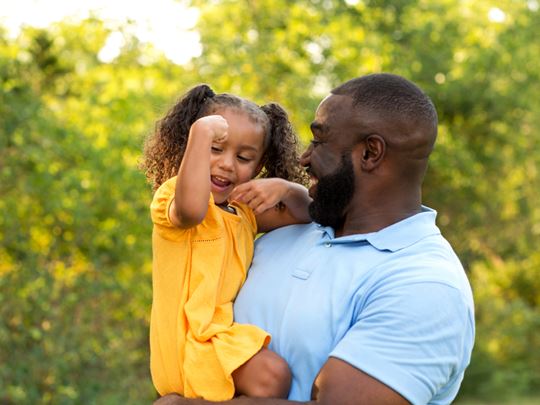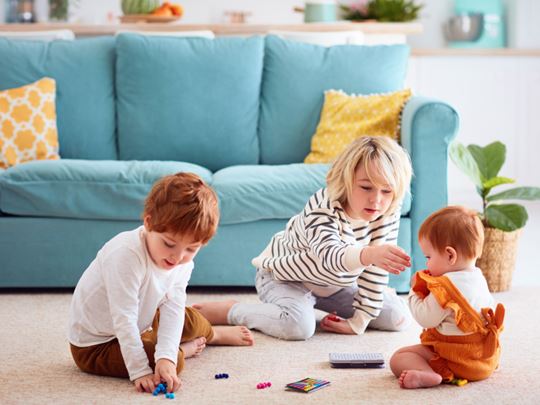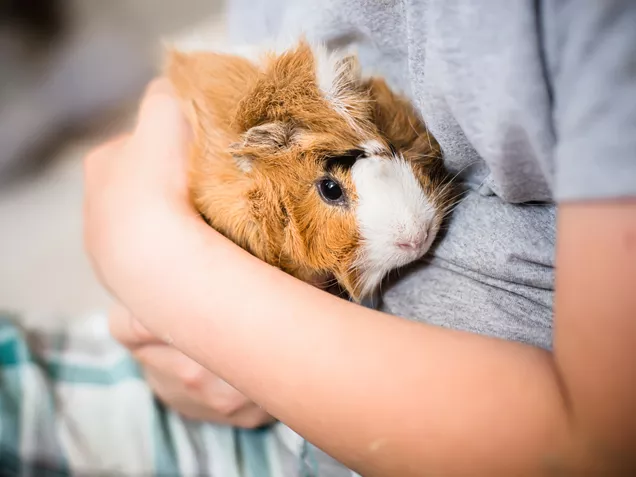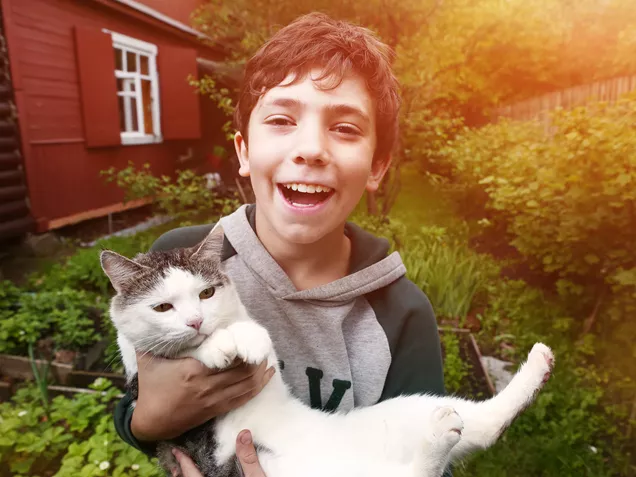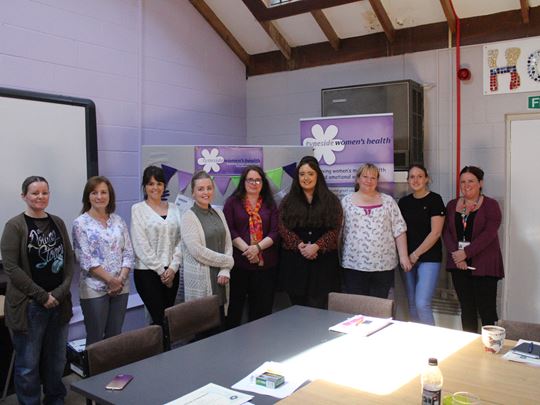The Impact of Trauma on Child Brain Development
Many care-experienced children deal with the impact of trauma in their day-to-day lives. Let’s learn how trauma can influence a child’s development, and how therapeutic parenting techniques can support children to heal.
Understanding developmental trauma
Imaging that you’re walking in the park one day when you spot a large dog. The dog isn’t on a lead, and its owner is nowhere to be seen. Its ears flatten tightly against its head as it flashes rows of sharp teeth, beginning to growl. Sensing that there’s danger, your body begins to react: your heartrate increases, you become more alert and your muscles tense. Your body releases stress hormones as it prepares to react to the threat through fight or flight.
For children who have experienced trauma, those stress responses don’t just happen in the face of genuine danger, like an aggressive dog. Many care-experienced people live with complex developmental trauma, which means that they have been repeatedly exposed as a child to stressful circumstances. There are many circumstances which can cause a child to live with trauma, including:
- Being removed from their family home
- Facing neglect or abuse
- Losing a loved one in death
- Witnessing domestic violence
- Living with a parent with an unmanaged mental illness
- Having a family member go to prison
- Living though parental separation

Trauma, the body and the brain
Trauma is the long-lasting response which we can have to being exposed to something incredibly distressing. We can experience the effects of trauma at any age, but when it’s experienced in childhood, it can have a huge impact on development. Even a foetus in the womb can experience trauma if their mother is exposed to high levels of stress, such as through experiencing addiction or domestic violence. Even if a child is too young to remember traumatic experiences, their body will remember. Their negative experiences may impact how their brain develops, their behaviours and when they reach developmental milestones.
Repeated exposure to traumatic circumstances wires the brain and the nervous system to live in a world of constant threat, where survival and safety are the only things which matter. When living in a constant state of fight, flight, freeze or fawn, the brain has less room to flourish, dampening its ability to develop higher skills like strong self-esteem, good social skills, impulse control and a child’s ability to regulate their emotions without help from adults.
Building safety through trusting relationships
As challenging as these adaptions can be for children and those who care for them, it’s important to remember that the brain has adapted this way as a means of protecting the child. Childhood trauma is often the result of poor-quality relationships with adults, and many of the effects of trauma can be healed by building nurturing and loving connections with safe adults.
This healing doesn’t happen magically overnight, though. When a child has learned that the world is unsafe and that the adults in their life can’t be trusted to fill their needs or protect them from harm, they cannot simply ‘switch off’ their trauma responses when living in a safe environment such as a foster home. Children who have been removed from unsafe situations may perceive everyday situations as threatening, and their behaviour may seem overly reactive to the world around them.
Therapeutic parenting methods that work
Each child’s healing journey is a long road, and it takes a lot of patience, empathy and therapeutic guidance for children to heal and build trusting relationships with others. Thanks to the wonders of neuroplasticity— the brain’s ability to form new neural connections— there is plenty of hope for recovery and healing, and children can learn to respond to the world in a healthier way and see it as a safer place.
Foster parents can help children to build these new neural pathways by using theraputic parenting techniques. We teach these skills in our mandatory training, where you’ll learn that many common parenting techniques, such as time-outs and the naughty step, can do more harm than good for a child who has experienced trauma. This is because these methods rely on the assumption that the child understands that their relationship with their caregiver is built on a solid foundation, which is not always the case for children in care.
Let’s take a look at an example of how two very different children might react to the same consequence for their behaviour, and how therapeutic parenting can help to support a child who lives with trauma when challenges arise.
Scenario: After hitting their sibling in order to snatch a toy, the child is told to go to their bedroom for ten minutes of time-out.
Child A: Child A is living at home with their family. They have a secure attachment to their caregiver, and understand that being sent to their room is only a temporary measure. Having had a healthy environment in which to grow, where they know that they are loved and safe even when their behaviour is being addressed, this method is appropriate for teaching them that being unkind to their sibling is wrong and will lead to them missing out on fun time with the family. They are able to learn from this experience and avoid the behaviour in future, and are able to seek comfort from their caregiver in the aftermath.
Child B: Child B has recently moved into a new foster home. When they were living back at home with their family, they faced neglect and would spend hours locked in their bedroom with no interaction or anyone to comfort them. By using alone time in their bedroom as punishment, the child is experiencing retraumaziation. They do not know how long they will be left alone and cannot trust that their foster parent will come back for them. As trauma has impacted their brain development, they haven’t yet learned to regulate their emotions alone, and thus cannot soothe themselves without their foster parent’s support. No lessons are learned; instead, their emotional state becomes more unmanaged and their relationship with their foster parent may be damaged due to feelings of insecurity and abandonment.
An alternative approach for child B: Foster parents can help the children in their care to avoid distressing situations like these by using the ‘time in’ method instead of the ‘time out’ method. ‘Time in’ prioritises staying close with your young person during difficult moments to help them regulate their emotions in a safe way.
Boost your skills with Fostering People
The above example looks at just one of the many different therapeutic parenting approaches which you’ll learn about when you foster with us. We run a comprehensive programme of training covering a huge range of specialist subjects, including the P.A.C.E model. You’ll also have the opportunity to pick and choose from a range of courses which are designed to broaden your understanding of the needs of your foster children.
Therapeutic parenting may feel strange at first, particularly if you’ve brought your own children up in a more traditional way or if it seems very different to the way you were raised. It takes time to study and master, but once you begin using therapeutic parenting techniques you’ll see just how beneficial they can be for children who have experienced trauma.
Ready to learn more?
Here at Fostering People, we’re always ready to welcome more caring and passionate individuals who see a future in caring for children. When you foster with us you’ll receive a whole range of support, including specialist advice and a generous fostering allowance.
If you’re ready to begin the journey of a lifetime, contact our team today on 0800 077 8159 or via our quick and easy online form— we’re waiting to hear from you!
Recommended reading for foster parents
Check out some of our favourite books which discuss therapeutic parenting strategies in more detail, to help you understand the importance of a therapeutic approach for children who live with the impact of trauma.
-
‘Creating Loving Attachments: Parenting with P.A.C.E to Nurture Confidence and Security in the Troubled Child’ by Dr. Dan Hughes and Kim Golding
-
‘The Body Keeps the Score’ by Dr. Bessel van der Kolk
-
‘The Boy Who Was Raised as a Dog’ by Bruce D. Perry and Maia Szalavitz
-
‘The A-Z of Therapeutic Parenting: Strategies and Solutions’ by Sarah Naish
-
Read our blogs on P.A.C.E strategies and playful parenting.


















